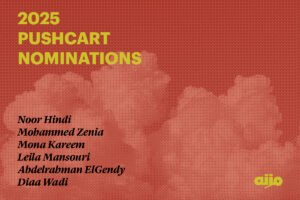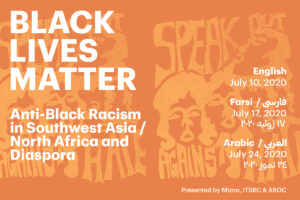
March 28, 2025
Review: Perfect Victims: And the Politics of Appeal by Mohammed El-Kurd
Palestinian poet Summer Farah reviews Mohammed El-Kurd’s newly released Perfect Victims: and the Politics of Appeal in light of the horrifying intransigence of settler-colonial genocide on Gaza, adding to our understanding of the “rhetorical exhaustions” employed to nullify the impact of resistant political action. Order Perfect Victims HERE.
—Nour Eldin H., assistant editor
Subtlety: something I go back and forth worrying about, an oscillation between “not that deep” or “not worth it” to address, but with the knowledge that it is still cutting, cutting, cutting.
—Summer Farah
Review: Perfect Victims: And the Politics of Appeal by Mohammed El-Kurd
In Toni Morrison’s speech “A Humanist View,” she identifies “distraction” as a function of racism: distraction “keeps you from doing your work. It keeps you explaining over and over again, your reason for being.” Over the past sixteen months since Israel escalated a genocidal bombardment of Gaza, as well as in Lebanon and the West Bank, “distraction” is a familiar repetition: stopping genocide requires not just attention, but action. It is only natural that those who commit genocide seek to make you as distracted as possible.
What is claimed as “distraction” varies. In 2024, as a team with a racist mascot secured their second Super Bowl victory in a row, Israel launched an assault on Rafah, killing over 80 Palestinians. My Twitter feed was split between clips of Taylor Swift in the crowd, destroyed buildings, and the scolding of attention on Taylor Swift rather than the destroyed buildings. I do not begrudge the scolding, but I am reluctant to classify the Super Bowl as a distraction specific to Palestine; there are advantages the Zionists take, of course, when the headlines are sure to be elsewhere, but it feels indicative of the general dedication of the average US citizen, instead. We love sports, and spending, and gathering—no matter the context. We are an easy people to distract.
Instead, the “distractions” I find particularly sinister are the rhetorical exhaustions that Palestinians—and our allies—participate in almost systematically when it comes to matters specifically relevant to the occupation. As if each time a new horror is unveiled, there is a cosmic requirement for it to be buried in layers and layers of linguistic gymnastics before we can get to the real work of stopping the horror. Sometimes, the language distorts so much that you find yourself on a path to stop something else entirely. Of distraction, Toni Morrison says, “there will always be one more thing.” In his debut essay collection, Perfect Victims: The Politics of Appeal, Mohammed El-Kurd identifies and dissects these distractions, accessibly codifying them into an index with which that “one more thing” can be dealt with quickly, sharply—until, I hope, we refine our language enough to no longer, in El-Kurd’s words, “defang” the Palestinian. We can then focus on what is necessary, urgent, and true.
“I have always wanted to be human,” El-Kurd writes to open the second chapter. The severing of the Palestinian outside of humanity to a Western gaze enables the continued destruction of homes across Palestine, the murder of our families, the dispossession of land. It is not the actions of the Palestinian that disqualifies them from humanity, as “what makes some people heroes is what makes us criminals. It is almost simplistic to say that we are guilty by birth. Our existence is purely mechanistic; we are reminded, through policy and procedure, that we are unfortunately born to die.”
I come to Perfect Victims not from El-Kurd’s notoriety as Palestine correspondent at The Nation, but from his work as a poet. Poets working in other forms are often praised for the beauty they imbue into these other mediums—El-Kurd’s line is often beautiful, yes, but what I find most compelling is his brevity and control. The strength of Perfect Victims is its precision, its honesty. There is a trap in writing through the dehumanization of Palestinians via a book produced in English, from a US publisher, to a Western audience; El-Kurd is aware of these traps, of course. He continues, “When I wrote short stories about my grandmother Rifqa as a survivor of the 1948 Nakba, I was told to ‘humanize’ her. I searched in her character for quirks and quips that might pollute her humanity, then I effaced them.” Perfect Victims details this stripping on behalf of Palestinians en masse, utilized by media institutions that seek to nullify support of the liberation struggle and manufacture consent for genocide.
The “politics of appeal” are what occur in an attempt to endear the Palestinian back to these institutions and audiences. These practices are used by our allies, our covert operatives, and ourselves. They entail: affirming a Palestinian’s proximity to empire by bringing up their US Citizenship (it will not save them from being killed in the West Bank), bringing up their Christian faith (it will not stop the IOF from raiding churches on Easter), their educational background (it will not save them from losing their job), their distance from resistance movements (it will not save them from being imprisoned). But, again, it is not the Palestinian’s actions that determines their “humanity” or lack thereof—it is their Palestinian-ness. The rhetorical gymnastics employed so often move the Palestinian towards whiteness, a US-centric respectability, rather than the identity we are proud of. And so, this rhetorical gymnastics employed, both for us and against us, are distractions to the goal of a liberated Palestine. In his introductory notes, El-Kurd writes “Our people have sacrificed and struggled artfully to work within and around an unworkable system.” The tactics analyzed throughout are not new. El-Kurd’s arguments are not revelatory for Palestinians, nor does he intend for them to be. Instead, he writes: “I want us to invent a new future, to break out of the hamster wheel.”
So, how does Perfect Victims aid us in getting off the hamster wheel? Its structure makes it a compelling recommendation: with short chapters divided into shorter, digestible sections, it is a text easy to imagine assigned in classrooms or cited to back up arguments against The New York Times and other media institutions who have violently failed Palestinians. As I consider El-Kurd’s admission of “effacing” the character of his grandmother, it is the work done in the footnotes of Perfect Victims that I find most interesting. There are many martyrs in this book; El-Kurd makes a note to explain his choices for the shift of the martyrs’ stories from the body of the text to footnotes: “I want to address the reader as if they are a guest in my living room.” The footnotes are where the text feels most like a “living room”—it is a place to expand and explain, of course, but El-Kurd transforms them into something more.
From Rifqa, El-Kurd’s debut poetry collection, the poem I remember the most is “Laugh”—particularly the line, “My grandmother taught me ‘if we don’t laugh, we cry.’” The importance of humor, laughter, levity, is a major theme in Rifqa that returns in Perfect Victims, in the anecdotes El-Kurd offers of his time with other Palestinians, but also in his prose, and in the footnotes. A well-placed “Feminism!” as a footnote on a point about how Israeli snipers might be any gender is a burst of levity amid the grim reality that Israeli snipers of any gender are murdering Palestinian journalists. There’s a level of trust with the reader in these moments—an off-color joke to some (I would make this joke), it is an attempt to not strip his narrative voice of its specificity. Also in the footnotes is Arabic; this choice, too, brings the reader into the metaphorical living room. It’s an invitation, either way, whether it ultimately registers as intimacy or distance. And that distance is necessary for the narrative voice to maintain its complexity.
The synthesis of El-Kurd’s processing of his own dehumanization—“The consequences of dehumanization, the staggering and the subtle, reveal themselves not only in how we are perceived but in how we perceive ourselves.”—alongside clear criticisms of these institutions is useful: this fuller picture of the function of dehumanization brings a closeness attached to the urgency. It is not just the passive voice, it is how we internalize it—our own complicity alongside the bombs. Perhaps one of the most important tactics El-Kurd identifies is subtlety:
“Considering that the most brazen declarations are obfuscated from even nut grafs and margins, why bring up the subtle? Because in that subtlety one finds a more dangerous, more insidious logic. Examining the conversation between a liberal television anchor and a liberal author unveils the implicit underpinnings of their discourse: Palestinians must denounce certain affiliations, determined by the West, to be considered worthy of living. Or, I should correct myself, worthy of condolences, as we are doomed regardless.”
These sinister violences are present in cultural arenas outside of news media as well, such as in literary arts and film. Subtlety: something I go back and forth worrying about, an oscillation between “not that deep” or “not worth it” to address, but with the knowledge that it is still cutting, cutting, cutting.
Of all of the tropes El-Kurd indexes, the most presciently felt is in film, especially as we approach another “distraction” in the form of an Oscars ceremony. El-Kurd presents the trope that’s resonant in film coverage throughout the 2024 awards season:
“Take the genre of Israelis and Palestinians making films together. The Palestinian filmmaker is chaperoned to the film festival, allowed on stage as their authoritative cosignatory’s charismatic sidekick. No one—not the producer of the festival, not the columnist writing a review—seems to care about the content of the film, whether it is good or garbage. What matters most is that the film was codirected, a mode that satisfies a libidinal urge in the viewers. They eavesdrop a forbidden conversation, a titillating reconciliation between the slayer and the slain. Discussions about the film, reviews, the way it is promoted, and our excited elevator pitches to one another all become masturbatory, reducing the film to the fact that it was a collaboration between an Israeli and a Palestinian, fulfilling the viewer’s fantasy of a happy ending to an otherwise miserable story. We turn it into a fetish.”
In her review of Palestinian-“Israeli” documentary No Other Land, co-directed by Basel Adra, Yuval Abraham, Hamdan Ballal, and Rachel Szor, about the expulsion of residents from Masafer Yatta, Mary Turfah writes:
“The film doesn’t engage with other ways this suffering might end. The only resistance we see is nonviolent demonstration. Adra is an activist, a term whose configurations are vague except vis-à-vis violence. The film matter-of-factly captures plenty of violent Israelis, settlers and soldiers, armed and sustained by the state, their bulldozers and their unmoved expressions, or their twisted smiles as lives are destroyed, but no Palestinian fighters, no direct Palestinian response. Instead, Palestinians and their supporters are ‘armed’ with their cameras, committed to capturing an aftermath to which a sympathetic Western audience might choose to respond on their behalf. At the film’s start, Adra’s father, who has been imprisoned and abused by the Israelis multiple times, describes a desire to throw rocks at Israeli soldiers, then apologizes to his Israeli guest, explaining that sometimes he finds himself so angry. The woman’s son was shot at a peaceful protest.”
Turfah’s description hits several of the points addressed in Perfect Victims, namely the “defanging” and distancing from affiliations that the Western viewer might deem improper. When the New York Times reports on Israeli atrocities, the actor is often missing. Violence hits the Palestinian as gravity forces the apple from the tree. Here, although the actor is filmed, the Palestinian remains a figure only in which things happen to them; in an attempt to restore the humanity to the Palestinian via collaboration of the “slayer and the slain,” the dignity of reaction is withheld—instead, they are still thoroughly dehumanized, made to apologize for even daring to have the thought of resistance.
I wonder: how does the appeal of No Other Land stand up at an awards ceremony attended by hundreds of notable Zionists? On the night of the Oscars, what would No Other Land spoken into the room do for the residents of Masafer Yatta—should they choose to throw a stone in the face of annihilation? Perfect Victims asks the reader to consider what is the true value of appeal versus what is sacrificed in that attempt. Toward the end, El-Kurd writes that the dehumanization of Palestinians finds us “guilty until proven otherwise and otherwise is often impossible.” Beating the “impossible” cannot happen with the colonizer’s logic; let Perfect Victims be a guide in dismantling these distractions, and moving forward with dignity.

Summer Farah is a Palestinian American writer, editor, and zine-maker from California. She is the author of I could die today and live again (Game Over Books, 2024) and The Hungering Years (Host Publications, 2026). A member of the Radius of Arab American Writers and the National Book Critics Circle, she is calling on you to recommit yourself to the liberation of the Palestinian people each day.












